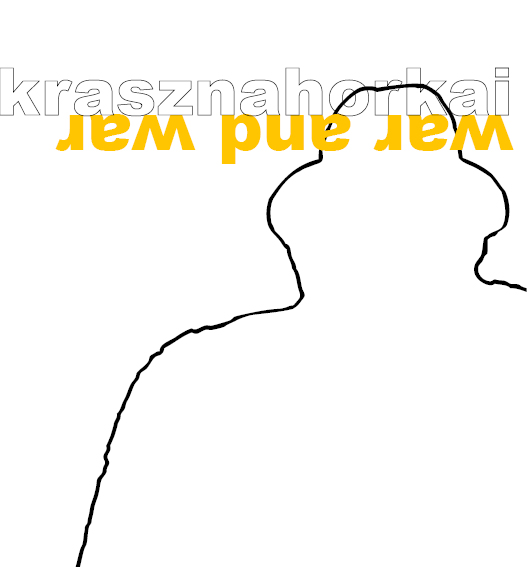

|
|
|
|
War and War :: A special literary project
INTRODUCTION
On November 22nd, 1992 at about quarter past, half past one at night I was walking on Kurfürstendamm, the Western main street of Berlin to an apartment on Pfalzburgerstrasse. I was watching the heavy traffic rushing by in the middle of the road, watching the solitude of the expensive shops behind the plate-glass of the shop-windows, watching the squandered gaze of people walking towards me and suddenly fright seized me.
It was one of those cases that you describe as lasting just a single moment, but in this case this is indeed what happened - a single moment of fright, that's all, arriving for no explicable reason at all, departing for no explicable reason at all, and leaving behind nothing but a shadow, and in this shadow, encircled by the night brightness of Kurfürsterdamm, there was an unexpected, fierce, poignant vision: a couple of people running for life in timeless devastation and meanwhile taking stock of all that they have to say good-bye to.
The book I started to write in 1992 rests on this vision, and given the feeling I had while working on it that there were less and less people who would grasp the meaning of a vision like mine, from 1996 on I tried to get in touch with them. I had been writing messages for two years and dividing them into separate sentences I had them published in literary journals. Then in 1998 I sent a kind of a last message, a story forwarded as a letter and entitled Megjött Ézsaiás /Isaiah has come/ in which the future hero described the roots, origin and spirit of the novel announced to be published the following year.
In 1999 finally the novel itself was published but instead of the last page I placed its end in reality. To be more exact, the book simply could not bear to be the end to something, so the actual ending, I decided, would step over to reality so that the proper end could be accomplished there at least. And it was indeed accomplished, the following way: in the last chapter the hero asks the essence of his life summed up in one sentence be engraved on a memorial plaque and placed on the wall of a Swiss museum close to a statue of Mario Merz. It is here, by this last wish of the hero that the novel ends. Reality however begins only at this point, since its characters drawn into the novel - Marie from the train and her husband, a museum director and his wife, and Mr Kalotaszegi, the gallery keeper -- decide that this last wish of the hero, if the strict rules of fiction did not allow, should at least come true within the more compliant fabric of reality. So they have the memorial plaque made, inviting a Hungarian artist, Imre Bukta for the task, they ask him to engrave that certain last sentence on the plaque, they fix the plaque on the wall of the museum in question, and gathering all together there, on June 27th, 1999 at 11 o'clock a.m. they unveil the memorial plaque indeed. The reality of the ceremony and the plaque placed on the wall of the museum for eternity, the hero and the last sentence of the novel on the plaque - Háború és háború /War and War/ ends here and from here on it is played on different instruments: its whole material from the single sentences of the messages through the text of the letter to the novel and the film on the unveiling of the memorial plaque in Switzerland is joined in a single work of art in this CD-ROM thus keeping the promise made to his kind, solitary, tired and sensitive readers and continuing this way the story of a dialogue, the author hopes.
László Krasznahorkai